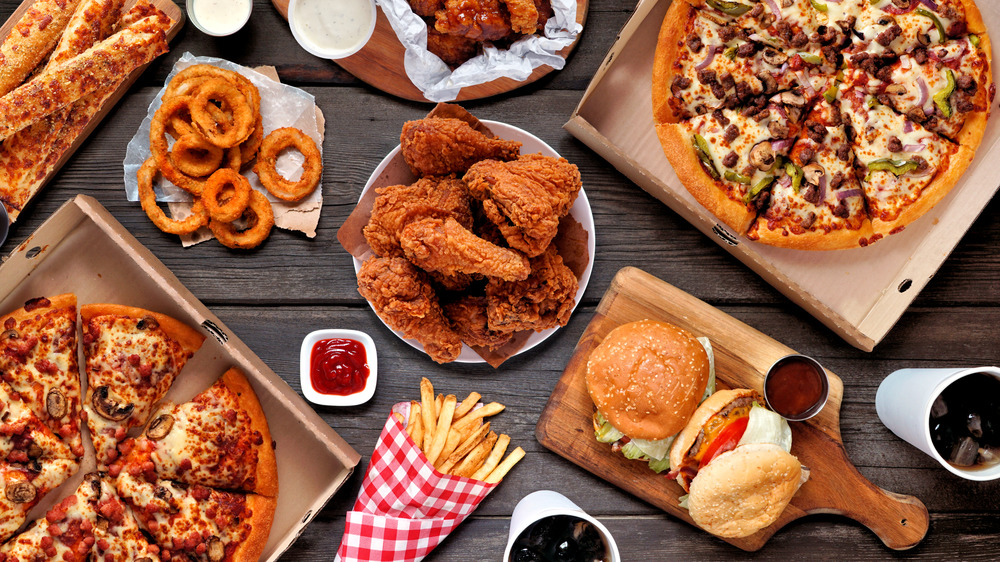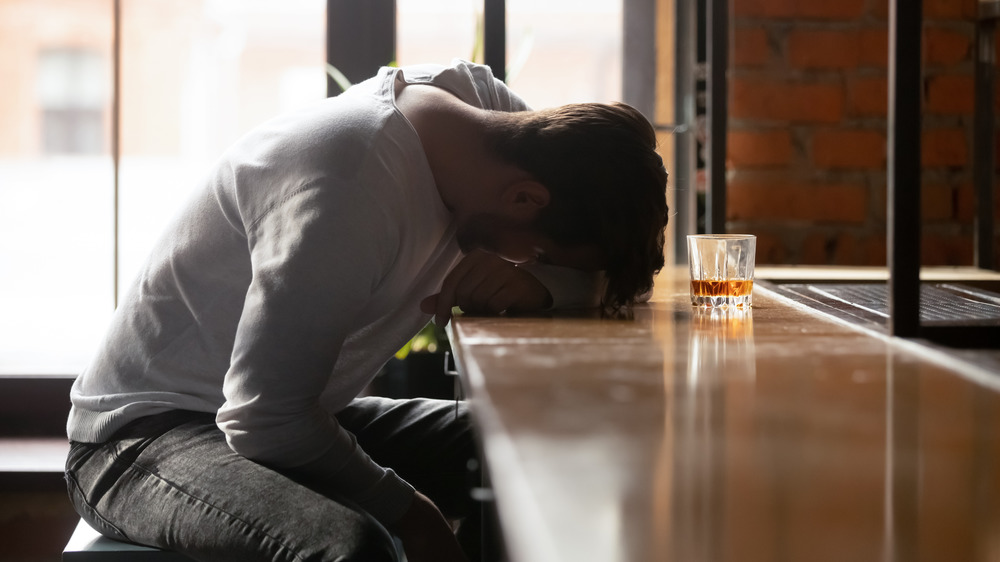This Is What Experts Think Is Really Fueling Addiction
We have to face it. The effects of the ongoing pandemic have already proven to be deadly for some, and detrimental for most. Our daily lives have been impacted in ways we once thought impossible. And now that we have been living with the COVID-19 virus for over a year, the true long-term issues it is bringing on society are starting to become more evident. In addition to the impact of the virus, the coping methods many are turning to may turn out to be as harmful as the pandemic itself.
Nora D. Volkow, M.D., Director of the National Institute on Drug Abuse (NIDA), part of the National Institutes of Health, explains to Forbes, "We know that consequences of the pandemic, including stress, grief, isolation and economic insecurity, can have a detrimental impact on mental health and can increase reliance on substance use, drive progression to addiction, and increase the likelihood of overdose."
The increased reliance we have on medication or other forms of addiction is what VeryWellMind describes as the self-medication theory. It is the idea that people use substances or other addictive behaviors in order to numb underlying issues that are not being managed properly.
Self-medicating comes in many forms
It may sound extreme, but if you step back to consider, many of us are guilty of or know of someone that overeats to comfort themselves after a break-up, shops to forget their woes, or needs at least half a bottle of wine to "relax." These are all examples of the self-medication theory.
And self-medicating appears to be what Americans are doing. PR News Wire is calling 2020 the year of the "comfort food comeback." In a study examining the eating habits of Americans during the COVID-19 pandemic, it was concluded that the average person was indulging in comfort meals five to six times a week. Not-so-healthy favorites like pizza, hamburgers, French fries, and mac-and-cheese all saw a dramatic increase of consumption over the last year.
In addition to an increase in comfort food consumption, a study reported by NPR shows spirits with higher alcohol content experienced a whopping 27 percent increase in sales compared to the previous year. And per The Overdose Protecting Map, nearly 62 percent of participating counties saw an increase of overdose cases following state-mandated stay at home orders.
Experts draw from previous traumatic events
What is truly alarming is that often self-medicating doesn't end when the problem it is "treating" does. Dr. Lorenzo Leggio, a researcher with the National Institute on Alcohol Abuse and Alcoholism, draws from the past to share his worries via Forbes. He notes, "We know from previous traumatic events, Katrina and 9/11, people who survived some of them developed alcohol use disorder relating to the increase in stress."
The statistics are showing that self-medicating is happening in many different forms to help us cope with the pressures of the pandemic. But there is a benefit to being informed over these unsettling facts. Very Well Mind claims that the self-medication theory is becoming discussed more openly than ever before, a decidedly positive trend. Society is showing greater compassion to those who are abusing a substance to avoid the main problem. Hopefully, this trend of normalizing conversations about self-medication continues and will make it easier for those who are leaning on an addiction to seek out help from their family, friends, or a therapist.



